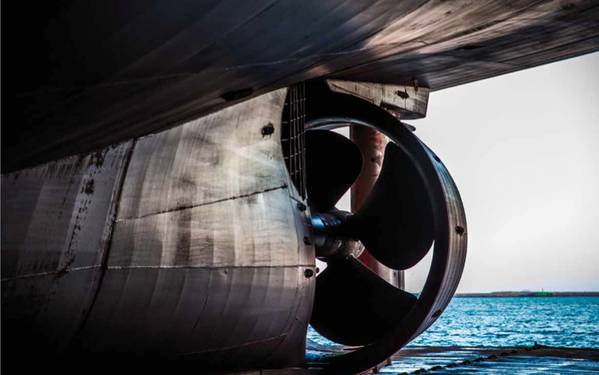
A new study by Lloyds Register and University College, London, discusses the prospects of marine fuels in 'Global Marine Fuel Trends 2030', giving insights into future fuel demand for the containership, bulk carrier/general cargo and tanker sectors (which represent about 70% of the global shipping industry's fuel demands). A brief overview follows:
Fuel oil remains the main fuel for deep sea shipping; LNG develops a deep sea bunker market share of 11%; low sulphur heavy fuel oil and hydrogen emerge as alternatives in certain scenarios.
Three scenarios are identified in the study as follows:
1.Status Quo
The world will continue its current growth momentum with some booms and busts over the next twenty years.
2. Global Commons
A shift to concern over resource limitation and environmental degradation will see a desire for a more sustainable world being developed and fairness in wealth distribution. Governments will find common ground and accelerated economic growth, within a framework of sustainable development, which will follow.
3. Competing Nations
States act in their own national interest. There will be little effort to forge agreement amongst governments for sustainable development and international norms. This is a self-interest and zero-sum world with a likely rise in protectionism and slower economic growth.
Marine Fuel Mix by 2030
So what does the marine fuel mix look like for containers, bulk carriers and tankers by 2030? In two words: decreasingly conventional. Heavy fuel oil (HFO) will still be very much around in 2030, but in different proportions for each scenario: 47% in Status Quo, to a higher 66% in Competing Nations and a 58% share in Global Commons, the most optimistic of scenarios for society. A high share of HFO, of course, means a high uptake of emissions abatement technology when global emissions regulations enter into force.
The declining share of HFO will be offset by low sulphur alternatives (MDO/MGO or LSHFO) and by LNG, and this will happen differently for each ship type and scenario. LNG will reach a maximum 11% share by 2030 in Status Quo. Interestingly, there is also the entry of Hydrogen as an emerging shipping fuel in the 2030 Global Commons scenario which favours the uptake of low carbon technologies stimulated by a significant carbon price.
"I think that the report underlines that any transition from a dependency on HFO will be an evolutionary process," comments Project Leader, Dimitris Argyros LRs Lead Environmental Consultant. "LNG is forecast to grow from a very low base to a significant market share by 2030 - even if there is no major retro-fit revolution most of the LNG take-up will be in new buildings. But it is important to note that an 11% share in 2030 is the equivalent in volume of about 20% of the bunker market today."
"What we can say is that the uptake of engine and alternative propulsion technology and the emergence of non-fossil fuels can only be driven by a society's ability to create a world with lower GHG emissions the technology is not the barrier. Key will be policy and markets. Shipping can control its own destiny to some extent but shipowners can only focus on compliance and profitability. If society wants lower GHG emissions and cleaner fuel, change in shipping has to be driven by practical regulation and market forces so that cleaner, more efficient ships, are more profitable than less efficient ships with higher GHG emissions."
To download a .PDF copy of the report: www.lr.org/gmft2030
Hard copies can be ordered from the LR Webstore at: www.webstore.lr.org



